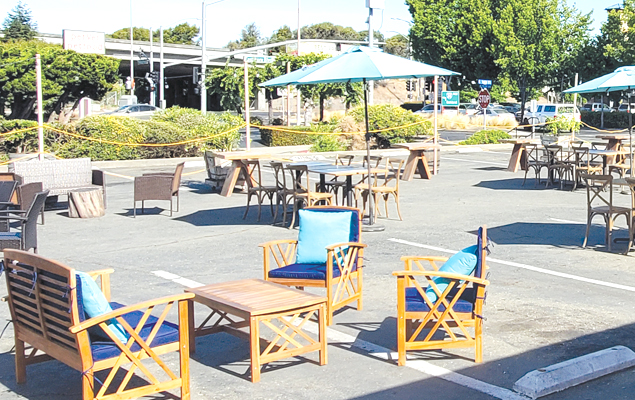
America is home to more than five million minority-owned businesses. Eight percent of these entrepreneurs are Hispanic, while about five percent of all self-employed Americans are black, and another ten percent Asian.
Unfortunately, these small businesses have been greatly impacted by COVID, with the Bay Area seeing one of the highest business closure rates in the nation. Nearly 10,000 businesses have closed in the Bay Area since the start of the pandemic – more than 4,000 of them are closed permanently, as they were unable to survive the lockdowns or reduced customer traffic.
According to Yelp’s Local Economic Impact Report, more than 100,000 businesses nationally have permanently shut down during the pandemic. Total closures are actually higher, as Yelp’s numbers represent only those businesses listed on Yelp.
The restaurant industry continues to be among the most impacted, with an increasing number of closures. Breakfast and brunch restaurants, burger joints, sandwich shops, dessert places and Mexican restaurants are among the types of restaurants with the highest rate of business closures nationally.
Some business sectors have been able to survive the pandemic relatively well. In general, professional services and solo proprietors experienced a low rate of closures. This group includes lawyers, real estate agents, architects, and accountants. Health-related businesses in particular have been able to maintain a low rate of closures – orthopedists, internal medicine, hospitals, physicians, family doctors and OB/GYNs all have less than three closures out of every thousand businesses.
Yelp’s closure data also shows that demand for home, local and automotive services has remained strong with a far lower rate of closures compared to restaurants and retail. Towing companies, plumbers and contractors in particular have maintained a low rate of closures.
In a recent nationwide poll of small-business owners by the National Federation of Independent Businesses (NFIB), one-in-four small business owners reported that they will have to close their doors in the next six months if the current economic conditions don’t improve.
The NFIB stated that, “the health crisis severely impacted most small businesses at the onset, but the economic recovery has been less uniform since then. Sales levels are still fifty percent or less than they were pre-crisis for one-in-five (20 percent) small businesses with another 29 percent at sales levels of 51 percent-75 percent of pre-crisis.”
Intending to support small business are the many grants, loans, programs and other support at the local and state levels.
The City of Oakland and other local government continue to offer a range of business resources, while at the federal level, the Small Business Administration (SBA) has extended paycheck protection and other programs.
Isabel Guzman recently was appointed Small Business Administrator, a key position in President Biden’s cabinet. She gave the following comments upon her cabinet appointment as head of the SBA:
“All of our small businesses are critical to our collective success as a nation. Their American dreams fuel our economy, bring new ideas to transform our lives for the better, and enliven every main street in America.
“So many small businesses across the country have been devastated by the pandemic and economic crisis. A disproportionate impact has fallen as it often does, on our businesses owned by people of color,” Guzman said.
The SBA recently announced that it has approved approximately 60,000 PPP loan applications submitted by nearly 3,000 lenders, for over $5 billion, between the program’s re-opening on January 11, 2021 through to Sunday, January 17. Last week, the PPP provided dedicated access to community financial institutions that specialize in serving underserved communities, including minority-, women- and veteran-owned small businesses.

